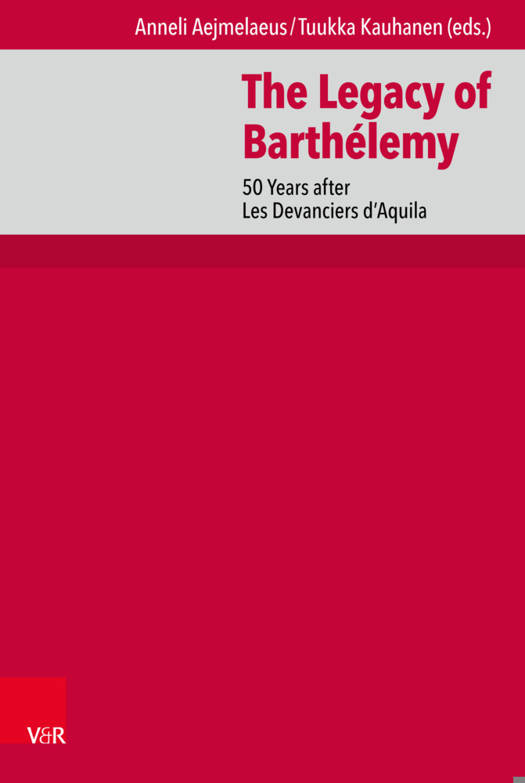
- Afhalen na 1 uur in een winkel met voorraad
- Gratis thuislevering in België vanaf € 30
- Ruim aanbod met 7 miljoen producten
- Afhalen na 1 uur in een winkel met voorraad
- Gratis thuislevering in België vanaf € 30
- Ruim aanbod met 7 miljoen producten
Zoeken
The Legacy of Barthelemy
50 Years After Les Devanciers d'Aquila
€ 147,95
+ 295 punten
Omschrijving
Les Devanciers d'Aquila by Dominique Barthelemy (1963) is an epoch-making work on the textual history of the Septuagint. On the basis of his analysis of the Nahal Hever Minor Prophets Scroll, Barthelemy developed his theory of an early Hebraizing revision (so-called kaige revision), designed to bring the traditional text of the Septuagint closer to the Hebrew text, and recognized examples of it in the B-text of books such as Joshua, Judges, and Samuel-Kings. The work of these early Hebraizing revisers resembled the later very literal translation by Aquila; hence the name of the book, "the predecessors of Aquila". Textual scholars of today continue in the footsteps of Barthelemy and work on the same questions that were raised in Devanciers: How extensive was the influence of the kaige revision and how can it be recognized? What is the nature of the Lucianic text: when does it represent the Old Greek and when does it give a stylistically revised text? What is the relationship between the kaige revision and Theodotion's revision of the Septuagint?The present volume mainly consists of papers presented at the 50th anniversary symposium of Les Devanciers d'Aquila that was held in connection with the SBL International Meeting in St Andrews, Scotland, in 2013. The papers focus on history of research, case studies on the text of Samuel-Kings (1-4 Kingdoms), and studies on the text-historical position of specific witnesses.
Specificaties
Betrokkenen
- Uitgeverij:
Inhoud
- Aantal bladzijden:
- 230
- Taal:
- Duits
- Reeks:
- Reeksnummer:
- nr. 9
Eigenschappen
- Productcode (EAN):
- 9783525540626
- Verschijningsdatum:
- 3/04/2017
- Uitvoering:
- Hardcover
- Formaat:
- Genaaid
- Afmetingen:
- 155 mm x 231 mm
- Gewicht:
- 421 g

Alleen bij Standaard Boekhandel
+ 295 punten op je klantenkaart van Standaard Boekhandel
Beoordelingen
We publiceren alleen reviews die voldoen aan de voorwaarden voor reviews. Bekijk onze voorwaarden voor reviews.










